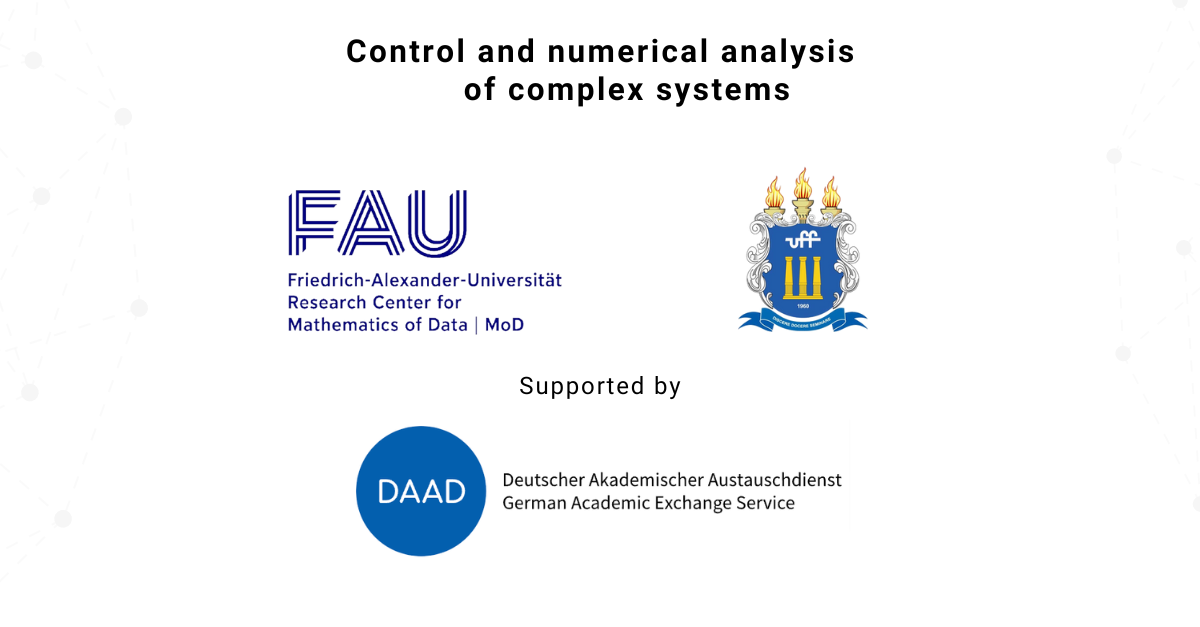Control and numerical analysis of complex systems
- Project/grant agreement No.: 57703041
- Principal Investigators (PI): Prof. Enrique Zuazua
- Host Institution: Friedrich-Alexander-Universität Erlangen-Nürnberg (FAU, Germany), Federal Fluminense University (UFF, Brazil)
- Supported by DAAD, Deutscher Akademischer Austauschdienst (German Academic Exchange Service)
- Duration: 2 years (January 2024 – December 2025)
Programmes for Project-Related Personal Exchange (PPP) from 2024 with Brazil
• Programme objective (outcome) 1: Junior scientists have gained international research experience and undergone further training at an international level
• Programme objective (outcome) 2: Binational research cooperation has been promoted and can be used as a starting point for future co-operations
The study of complex systems poses unique challenges due to their intricate dynamics and interconnected components. Understanding and controlling such systems have broad implications across various domains, including engineering, biology, economics, and social sciences. In recent years, Physics-Informed Neural Networks (PINNs) have emerged as a powerful tool for modelling and analysing complex systems. This research proposal aims to investigate the application of PINNs in studying the controllability of complex systems, with a particular focus on interdisciplinary problems. Neural Networks can also be modeled through other physical models, like spin glasses, and also present potential applications in complex systems.
The research will be conducted under the guidance of Prof. Zuazua, Prof. Límaco and Prof. Nuno Crokidakis, with the help of the young researcher MSc. Martín Hernández.
Activities
• Hierarchical and insensitive optimal control problems and its long-time behavior.
• Physics-Informed Neural Networks for the controllability of complex systems.
• Global and Numerical Analysis of Partial Differential-Algebraic Equations and applications.
• Optimal control of the nonlinear Schrödinger equation.
The objectives of this research are to explore the theoretical foundations of PINNs and their suitability for modeling complex systems, develop a framework to assess the controllability of such systems using PINNs, investigate the impact of different system parameters on controllability, apply the PINN-based approach to real-world interdisciplinary problems, and compare its performance with traditional control methods. The expected outcomes include a comprehensive understanding of PINNs for studying complex systems controllability, the development of a PINN-based framework, insights into system parameter influence, application to interdisciplinary problems, comparative analysis with traditional methods, and the dissemination of research findings to foster further advancements in the field.
People involved
Publications
- M. Hernández Salinas, A. Dominguez Corella (2025) Mini-batch descent in semiflows
|| Go to the Projects main page









